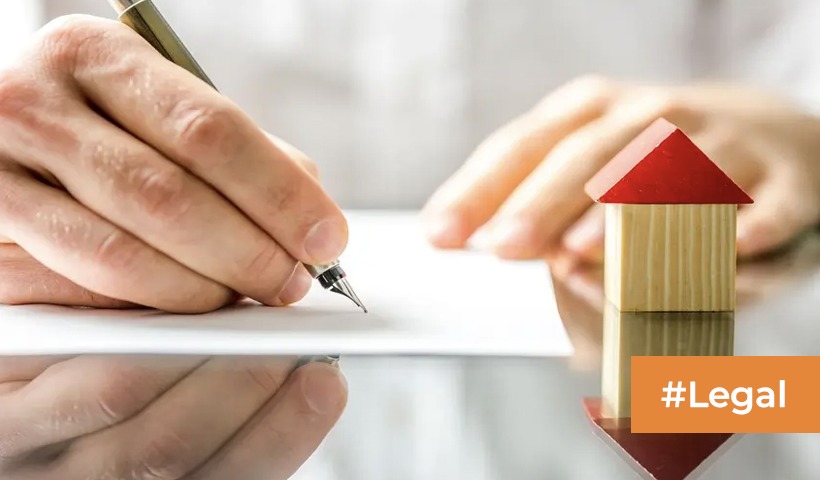What is a Real Estate Purchase Agreement for a House and Why is it Important?
In the world of real estate transactions, whether you’re buying or selling, the process hinges on one crucial document: the purchase agreement for a house. This legally binding contract is more than just a piece of paper; it is the backbone of the entire deal. It outlines every detail of the transaction and ensures that both parties—the buyer and the seller—are on the same page, literally and figuratively. But what exactly is a real estate purchase agreement, and why is it so important? Let’s break down this vital document and explore its key components and its role in a house purchase.
What is a Purchase Agreement?
A real estate purchase agreement is a legally binding contract that spells out the terms under which a property transaction will occur. This agreement involves a buyer and a seller agreeing to engage in a real estate transaction with all conditions and contingencies clearly laid out. Once both parties sign the agreement, the property and all involved parties are considered “under contract,” setting the transaction in motion.

The purchase agreement for a house is crucial because it provides clarity and structure to what is often a complex process. From the moment an offer is made, this document acts as a guideline, helping both parties go through the many steps involved in buying or selling property. Without a proper real estate purchase agreement, the deal would lack legal standing, leaving both buyers and sellers vulnerable to misunderstandings or, worse, legal disputes.
Read More: What is an Encumbrance Certificate? EC Meaning and Full Form in Property Purchases
Components of a Real Estate Sales Contract
A purchase agreement for a house contains several important sections, each designed to protect both the buyer and the seller while ensuring a smooth transaction. Here’s a look at the key components typically found in a real estate purchase agreement:
1. Buyer and Seller Information
This section includes the full names and contact information of all parties involved. Both buyers and sellers need to be clearly identified to avoid any confusion later in the transaction.
2. Property Details
Here, specific information about the property is laid out, including the address, parcel numbers, and a description of the property. This section may also detail any fixtures, appliances, or personal property included in the sale.
3. Purchase Price
The agreed-upon purchase price is listed in this section, including details on how the price will be paid—whether through a lump sum or financed through a mortgage. This part of the real estate purchase agreement also typically includes information about any initial deposits, such as earnest money, that have been or will be made.
4. Financing Details
This section outlines how the buyer plans to finance the purchase. Whether through a conventional mortgage, FHA loan, or other financing methods, the details are specified here. The purchase agreement for a house often includes contingencies tied to financing approval to protect the buyer.
5. Contingencies
Contingencies are conditions that must be met for the sale to proceed. Common contingencies include property inspections, appraisals, and obtaining financing. These contingencies ensure that both parties have options if something unexpected arises.
6. Closing Date
The closing date is when the official transfer of the property takes place. This section specifies when the buyer will receive the keys and when the seller will receive payment. The real estate purchase agreement ensures that all parties are on the same page regarding the timeline of the transaction.
7. Representations and Warranties
This section includes statements from the seller about the condition of the property. It may cover aspects like the structural integrity of the home, the presence of any known defects, and whether any repairs are required before closing.
8. Earnest Money Deposit
The earnest money deposit shows the buyer’s commitment to the transaction. The amount and conditions for this deposit are outlined in this section. The purchase agreement for a house typically dictates when and how this money will be held in escrow and what happens to it if the sale falls through.
9. Option to Terminate
This part of the real estate purchase agreement provides an opportunity for the buyer to back out of the deal under certain conditions, such as failure to secure financing or unsatisfactory inspection results.
10. Signatures
The contract is only valid once signed by all parties involved. This section ensures that everyone agrees to the terms and is ready to proceed with the transaction.
Read More: Agreement for Sale vs. Sale Deed in India
Conclusion
The purchase agreement for a house is more than just a formality; it’s a critical component of any real estate transaction. This document outlines every aspect of the sale, from property details to payment terms, ensuring that both buyers and sellers are protected throughout the process. By setting clear expectations and providing a roadmap for the transaction, the real estate purchase agreement minimises risk and helps both parties avoid potential pitfalls.
Understanding the elements of this agreement and how they function can make the difference between a smooth transaction and one fraught with issues. Whether you’re buying your first home or selling an investment property, having a solid grasp of the real estate purchase agreement is key to ensuring a successful and stress-free transaction. PropertyPistol, India’s Most Trusted Real Estate Expert, offers end-to-end services, zero brokerage, and personalised guidance for seamless property transactions.
FAQs
Does a Real Estate Purchase Agreement Need to Be Notarized?
No, a real estate purchase agreement does not require notarisation to be legally binding. However, it must be signed by all parties involved to be enforceable. Notarisation is typically only necessary if the contract is being recorded with public records, which usually applies to deeds, not the purchase agreement itself.
Can a Real Estate Contract Be Terminated?
Yes, under certain circumstances, a purchase agreement for a house can be terminated. For example, if a contingency such as a home inspection or financing falls through, the buyer may have the right to back out of the deal. State laws and specific contract terms also provide guidelines for lawful termination.
Do I Need a Sales and Purchase Agreement?
While it may be possible to buy or sell property without a real estate purchase agreement, doing so would be risky. This contract protects both parties by clearly defining the terms of the sale, leaving less room for disputes. Without this agreement, there is no legal recourse if either party fails to honour their commitments.
Are Real Estate Purchase Agreements Legally Binding?
Yes, once signed, a real estate purchase agreement becomes legally binding. The document obligates both the buyer and seller to fulfil their roles as stipulated in the contract. Failure to comply can result in legal consequences, including potential lawsuits.
Who Prepares the Real Estate Purchase Contract?
Typically, the buyer’s real estate agent prepares the purchase agreement for a house using pre-existing templates created by legal professionals. These templates are then customised to fit the specifics of the transaction, ensuring all relevant details are covered.
Disclaimer: The views expressed above are for informational purposes only based on industry reports and related news stories. PropertyPistol does not guarantee the accuracy, completeness, or reliability of the information and shall not be held responsible for any action taken based on the published information.



